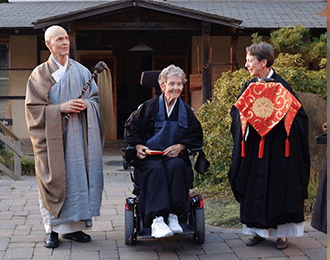A Psychiatrist Shares Tips For Balancing Your Career With Caregiving

Forbes – November 2021
Author: Jess Cording
When I was 31 years old, my father was diagnosed with advanced pancreatic cancer, and my whole world changed. My mother, sister, and I, who all had very busy careers, had to figure out how to balance work with caregiving. Even though we were lucky to be able to share responsibilities, it was so exhausting, I felt like I had jet-lag until long after his 15-month cancer journey had ended.
In my professional life, while it did force me to set boundaries with my time and energy, I was so terrified of doing a sub-par job with my patients and projects, the anxiety kept me up at night. I was showing up every day with a smiling face, excited to help people live healthier lives, but behind the scenes, I felt like I was falling apart.
November is National Family Caregivers Month, a time when we acknowledge issues caregivers face and how to provide support. I interviewed Dr. Anisha Patel-Dunn, who serves as Chief Medical Officer at LifeStance Health, provider of virtual and in-person outpatient mental health care. With nearly 20 years of experience as a practicing psychiatrist and managing a large group practice, she is responsible for overseeing all clinical services delivered through the mental healthcare platform.

Jess Cording: What are some of the unique struggles of caregivers who are also working full or part-time?
Anisha Patel: Caregivers face a unique challenge in that they’re often prioritizing their loved ones’ needs ahead of their own, and it can be challenging to find the time to incorporate their own self care. Navigating the demands of a job on top of caregiving responsibilities can make prioritizing their mental health even more challenging.
Our mental, physical and emotional health go hand-in-hand, and taking time for yourself is a very important habit (and the one we are often the first to neglect). While it can be challenging to work in time for yourself to an already packed schedule, we cannot be the best version of ourselves and show up for our loved ones if we don’t prioritize our own wellbeing.
Cording: What are some of the unique demands young caregivers face when trying to balance career with caregiving?
Patel: Especially in our digital world, it’s often an expectation for young employees who are trying to build their careers that they should be available outside of normal business hours. The pressure to say “yes” to every professional ask while also prioritizing their responsibilities as a caregiver can feel overwhelming and impact their mental health.
For those who are just starting out in their careers or work in a role that has limited flexibility, they may experience increased levels of stress or anxiety when asking for time off to care for their loved one. Younger caregivers also may not have the financial flexibility to take time off or reduce their hours, which can be incredibly stressful and potentially lead to burnout.
Cording: What are some common signs of caregiver burnout?
Patel: Signs of burnout can include feeling irritable, anxious or depressed; avoiding people and activities that you normally enjoy; feeling run down and like you don’t have energy; and neglecting your own physical and mental health needs.
Cording: What are some important things caregivers should talk to their employers about?
Patel: I’d encourage caregivers to have an honest conversation about their needs and concerns with their manager. Feel empowered to ask for the adjustments needed to succeed as both an employee and a caregiver—whether that’s shifting hours, designing a different work schedule or requesting extended time off. A good manager knows that in order for their team to perform at their best, they need to strike a healthy work-life balance. Juggling both roles in silence and sacrificing your own health is the quickest way to not only burn out as a caregiver, but also burnout as an employee — something that your employer wants to avoid too.
Cording: For caregivers who are self-employed, what steps can they take to protect their energy and their business?
Patel: Doing your best to develop a routine and daily structure can be helpful. For young professionals who are self-employed or freelancers, they may also experience increased feelings of loneliness and isolation if their job requires them to work alone rather than with a team. It can be helpful to stick to a daily structure so you’re getting enough sleep, eating healthfully, going to bed and waking up at the same time. While these may seem like small gestures, having a routine like this that grounds you is critical.
Cording: What are a few examples of a first step you would share with a caregiver feeling burnt out and overwhelmed by juggling their career with caring for a loved one?
Patel: A positive first step is carving out time each day to engage in some form of self-care, even if this is just for 20 minutes. I would also encourage caregivers who are feeling burned out or overwhelmed to reach out for support—whether that’s a friend, family member or mental health professional. Talk about your feelings and experience with those close to you. Don’t be afraid to speak up.





